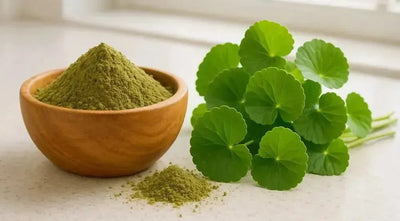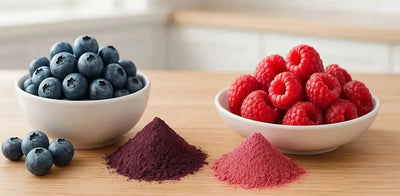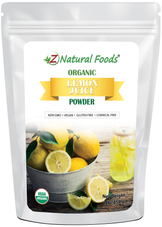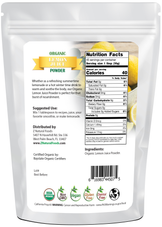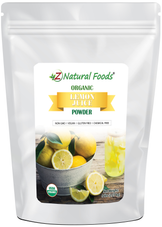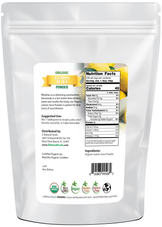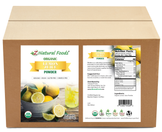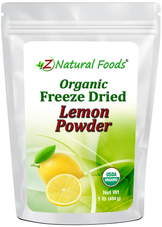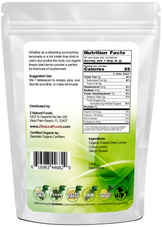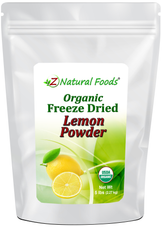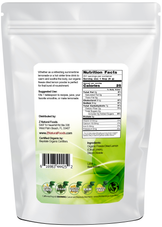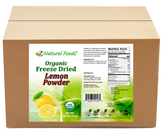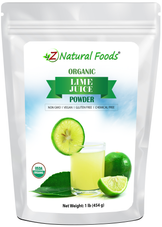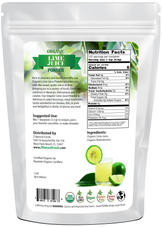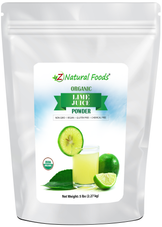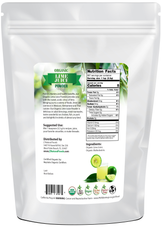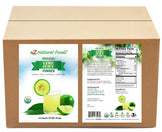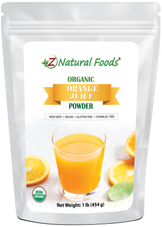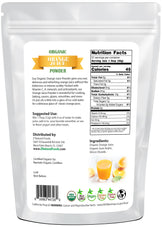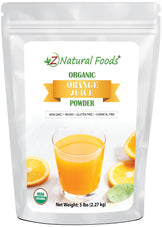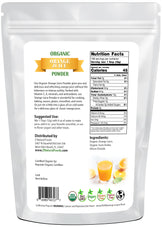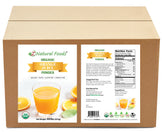Description
Description
While lemons are not considered the king of the citrus family, don’t allow the simplicity of this bright yellow tart and tangy fruit to fool you.
Lemons are loaded with multiple culinary and nutritional uses. Plus, lemons are extremely versatile and can be consumed in a variety of ways.
Now, if you have ever wondered what the difference is between lemon powder and lemon juice powder, then this article is for you.
What is the difference between lemon powder and lemon juice powder?
Lemon powder is a lemon that has been dried (freeze-dried, air-dried, or spray-dried) and milled into a powder. Although the fiber has been removed in a juice powder, all other nutrients and compounds are perfectly balanced and more concentrated than the lemon powder. There will also be differences in color and taste between the juice powder and the whole-food powder.
Whether eaten straight, squeezed into a glass of warm water, or used directly on your food to give it a fresh and delicious taste, lemons are well known for containing a treasure trove of nourishment.
Lemons contain nutrients such as; citric and ascorbic acid, calcium, bioflavonoids, quercetin, pectin, and calcium, along with powerhouse phytonutrients like hesperidin, diosmin, eriocitrin, and d-limonene.
This is why the simple habit of drinking a warm glass of water with a half-squeezed lemon (first thing in the morning) provides the body with extraordinary nourishment and may support detoxification pathways.
With that, here are a few of the common questions we receive about lemon juice vs lemon juice powder.
Lemon Powder vs Lemon Juice Powder, what’s the difference?
Because we at Z Natural Foods provide you with a highly versatile form of nourishing, high-quality foods, we believe it is our responsibility to answer all of your important questions.
After all, well-informed customers are happier and better able to make good choices.
Today, we will answer some of your most common questions regarding this zesty powerhouse of nourishment: lemon powder vs lemon juice powder.
By the time you are done reading this, you may not be a Lemonologist or have a master's degree in lemonology, but you will surely be able to answer the question;
What is the difference between lemon powder and lemon juice powder?
Let’s get started.
Is Lemon Powder the Same as Lemon Juice Powder?
The simple answer to this question is NO.
But, as with everything in life, there are complex reasons for the simple answer.
While using food in powder form has its advantages and disadvantages, it is essential to understand the intrinsic facts that create those differences.
Comparing lemon powder to lemon juice powder is a wonderful example.
Juice powders are one version of what is known as extract powders because juicing is one of many forms of extraction (juicing, alcohol, water, alcohol & water, glycerin).
The umbrella term “extract powder” describes various highly concentrated versions of the plant, fungi, and animal foods in either powder or liquid form. These different versions on the market create unique variables for how these highly concentrated foods are potentially used for their nourishing qualities.
Some of these variables are defined in concentration levels. Full spectrum extracts concentrate a food or herb as a whole (1:1, 4:1, 10:1, and 100:1), so you are getting all constituents found in that food in a highly concentrated, well-balanced manner.
Isolated standardized extracts separate and concentrate a particular family of compounds. It is essential to understand that isolated standardization does not produce a well-balanced end product but may provide a more targeted approach for why that food or herb is being used.
A juice powder comes closest to a full-spectrum concentration.
Although the fiber has been removed in a juice powder (which may take away some nourishing properties), all other nutrients and compounds are perfectly balanced and more concentrated.
Lemon powder is simply a lemon that has been dried (freeze-dried, air-dried, or spray-dried) and milled into a powder. This is a whole-food powder with all constituents intact. The water is removed, and nothing has been concentrated.
You can also count on the fact that there will be differences in color and taste between the juice powder (more vibrant color and robust flavor) and the whole-food powder (varying from batch to batch).
Is Lemon Powder Healthy?
Every culture defines how and why food is considered “healthy” based on various factors.
According to western medicine, healthy food is defined as foods that provide you with the nourishment needed to sustain well-being and retain energy.
Traditional Chinese Medicine looks at food from a slightly different perspective. According to TCM, food is not defined as healthy or unhealthy but, instead, if it is the right food for an individual at a specific time.
TCM believes that the energetic effects foods can have on the body (warming, cooling, drying, moistening) are what dictate how one should eat. But there are also general guidelines for different times of the year.
For example, TCM believes that it is best to eat most foods cooked and warm during the cold months of winter for better digestion and utilization and to keep you warm and well-nourished.
In the warm summer months, when people are out and moving around, TCM generally looks at lighter, more cooling diets with more fresh produce as generally healthy.
So, is Lemon Powder healthy?
Based on both eastern and western definitions, the answer is yes. Lemon powder is rich and dense in nutrition and extremely easy to add to any food to boost its nourishing value.
How Do You Drink Lemon Powder?
There are many ways to use lemon powder to create or recreate a great beverage.
The only limitation is your imagination.
You can drink lemon powder by adding it to cold or hot water for simple and delicious lemon water. Lemon powder can also be added to hot tea for flavor and to enhance its nourishing qualities.
While there is nothing like a glass of fresh lemonade during the hot summer months, adding it to elderberry (syrup or powder) and ginger (syrup or powder) during those cold winter months can make a highly nourishing tonic.
If you are an athlete and need a quick replenishment of nutrients and electrolytes, adding lemon powder to coconut and pineapple water will do the job quite efficiently.
What is Lemon Powder Good For?
Creating a functional food powder comes with its advantages and disadvantages.
While replacing fresh, wholesome food with a powdered version is complex; the positive aspects certainly outweigh the negative.
When lemon powder is produced and stored correctly, it can either replace or be added to fresh lemon juice in baking, cooking, creating your favorite beverages, and skin care products to enhance flavor and kick the nutrition up a notch.
Lemon powder can also work as a perfect preserver or nutrient enhancer.
Some examples include but are not limited to:
- Cooking recipes that call for lemon, for example, cake recipes and bread: It brings the flavor of fresh lemon to your recipes and does not clump.
- Making lemonade: You can mix one tablespoon of lemon powder with a cup of water and some sugar to make tasty lemonade.
- Making lemon glazes: You can add lemon glazes to breakfast rolls, bread, doughnuts, and cookies.
- Getting rid of dandruff: You can mix the lemon powder with water and then use the resulting mixture to get rid of dandruff.
- Making coconut lemon buttercream: You could use lemon powder and our amazing organic coconut milk powder to make sweet lemon buttercream.
- Neutralizing foul odor: You can sprinkle lemon powder to fish to neutralize the odor.
- Marinating meat: You can use lemon powder to marinate the meat before cooking it.
Lemon powder is also suitable for topping cookies and making salad dressings and vinaigrettes.

